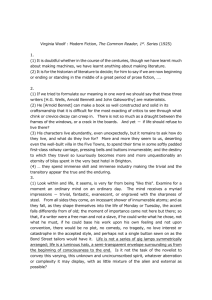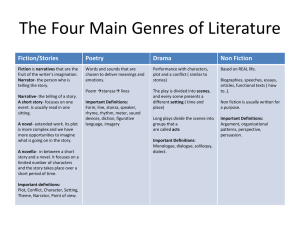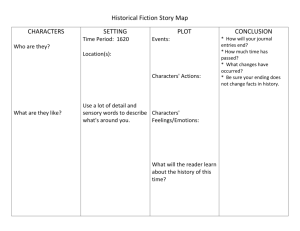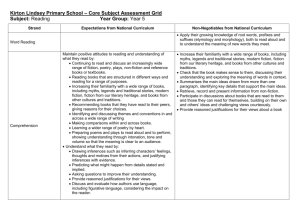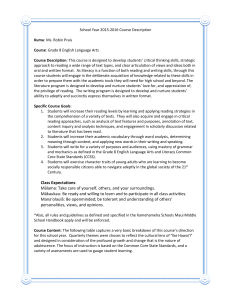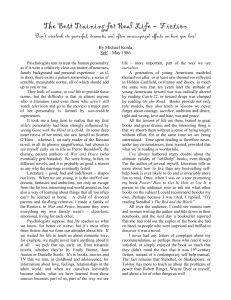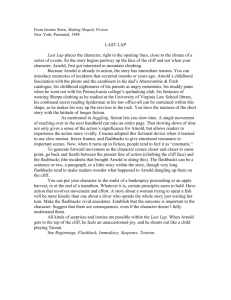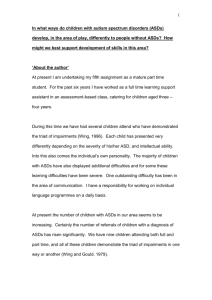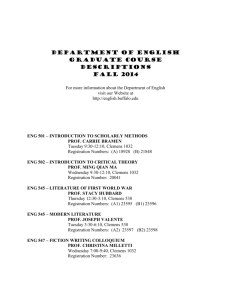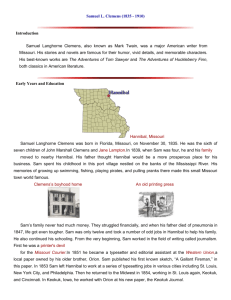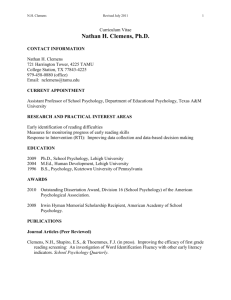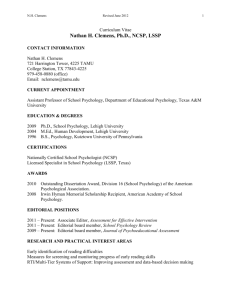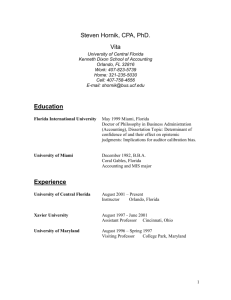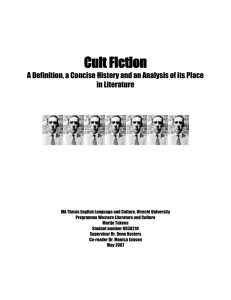Steven Student p. Steven Student English 9 per 2 2 September 2001
advertisement
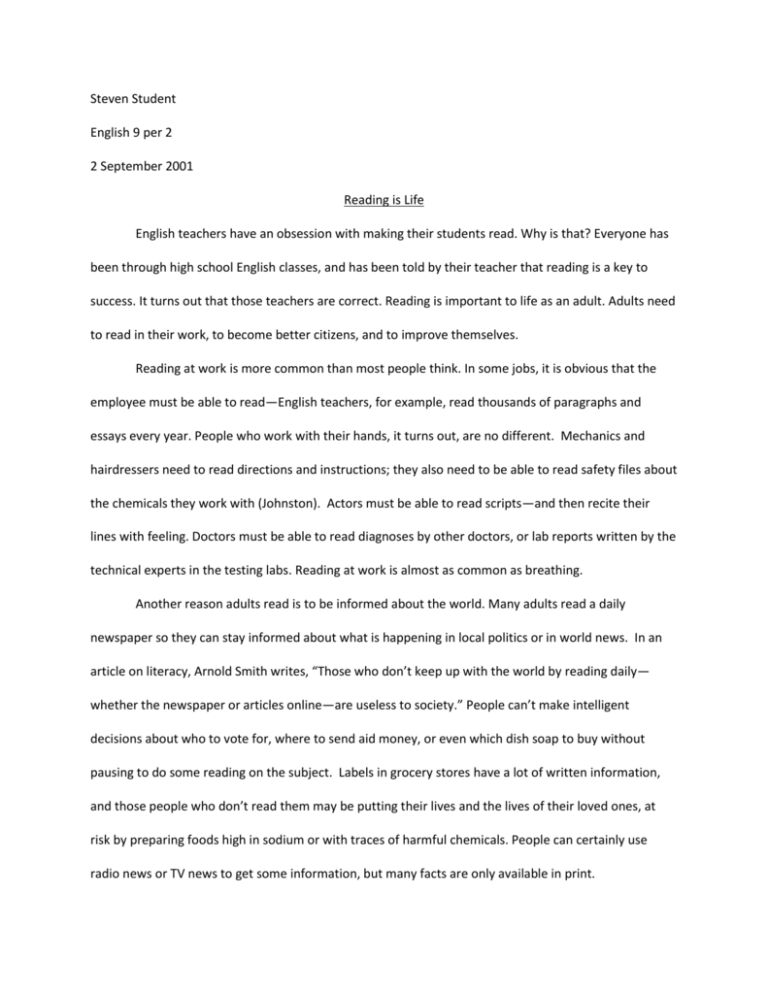
Steven Student English 9 per 2 2 September 2001 Reading is Life English teachers have an obsession with making their students read. Why is that? Everyone has been through high school English classes, and has been told by their teacher that reading is a key to success. It turns out that those teachers are correct. Reading is important to life as an adult. Adults need to read in their work, to become better citizens, and to improve themselves. Reading at work is more common than most people think. In some jobs, it is obvious that the employee must be able to read—English teachers, for example, read thousands of paragraphs and essays every year. People who work with their hands, it turns out, are no different. Mechanics and hairdressers need to read directions and instructions; they also need to be able to read safety files about the chemicals they work with (Johnston). Actors must be able to read scripts—and then recite their lines with feeling. Doctors must be able to read diagnoses by other doctors, or lab reports written by the technical experts in the testing labs. Reading at work is almost as common as breathing. Another reason adults read is to be informed about the world. Many adults read a daily newspaper so they can stay informed about what is happening in local politics or in world news. In an article on literacy, Arnold Smith writes, “Those who don’t keep up with the world by reading daily— whether the newspaper or articles online—are useless to society.” People can’t make intelligent decisions about who to vote for, where to send aid money, or even which dish soap to buy without pausing to do some reading on the subject. Labels in grocery stores have a lot of written information, and those people who don’t read them may be putting their lives and the lives of their loved ones, at risk by preparing foods high in sodium or with traces of harmful chemicals. People can certainly use radio news or TV news to get some information, but many facts are only available in print. Steven Student p.2 It may be obvious that reading for information and reading for work are necessary, but what about reading to improve oneself? Every time we read, we learn something, whether that is vocabulary or something about our own thoughts (Bloom, 2). Reading fiction can be a learning experience. Science fiction and historical fiction are the most obvious genres to learn from. In science fiction, characters often must deal with moral problems, and from historical fiction readers can learn about other cultures and what life was like many years ago. More obviously, people can read self-help books to try and improve their lives. People also read to learn new skills, such as cooking or crafts, or to plan a vacation destination by reading travel books or articles. Reading is with every person, every day, from street signs to lab reports, and from comic books to self-help books. Most everyone will read every day of their lives, so it is a good idea for us to start getting good at it. As Mark Twain said, a person who won’t read has no advantage over one who can’t read (Clemens). Since reading for work, for information, and for self-improvement is part of adult life, we need to take advantage of our ability to do it well. Steven Student p.3 Works Cited Bloom, Harold. Why Read?. New York: Harcourt, 1938. Print. Clemens, Samuel. “A person who won’t read”. BrainyQuote. Association of Quotemongers. 14 April 1998. Web. 11 August 2001. Johnston, Agatha. “Reading Skills Too Low In the Workplace” Maclean’s Magazine. 20 April 1998: 38-43. Print. Smith, Arnold. “Literacy: How Man is Different from the Apes”. The Vancouver Sun 12 July 2021. Final Edition. A3. Print.

